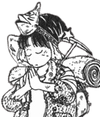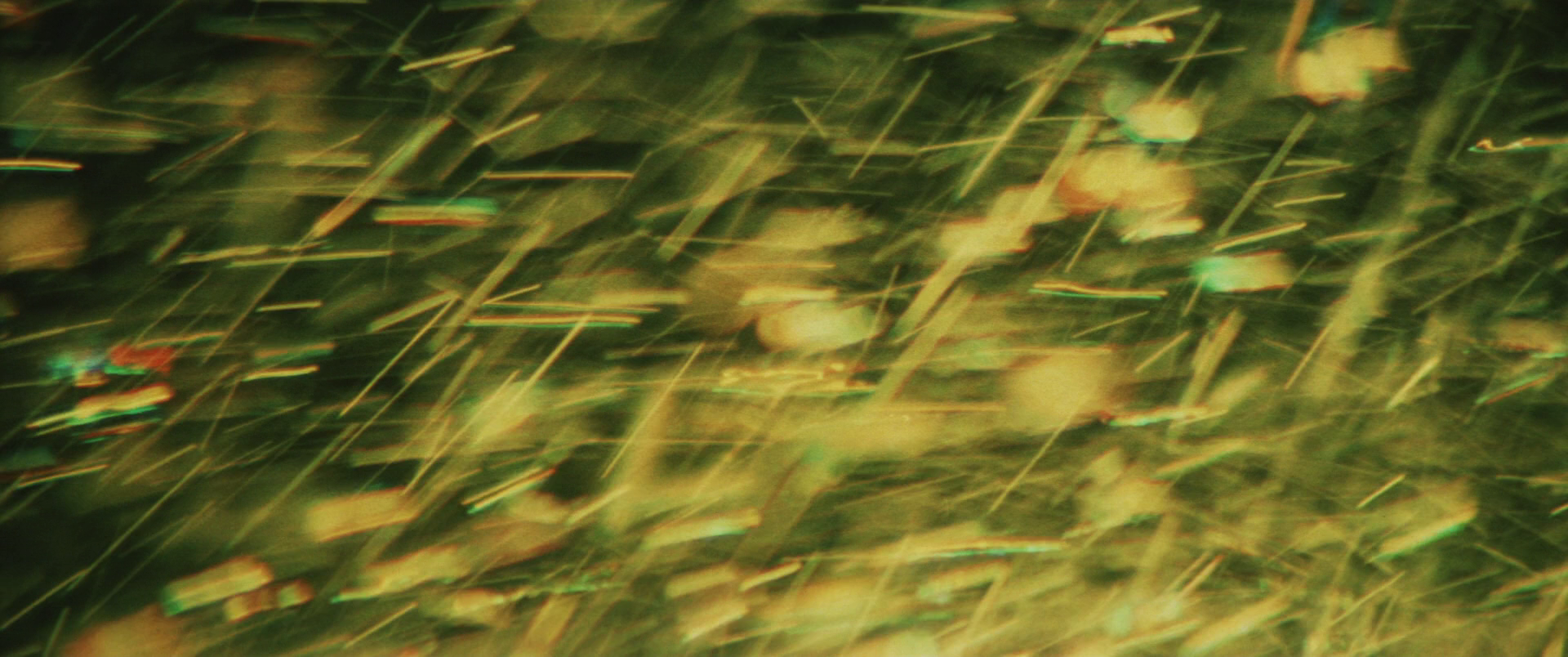Talking movies | Baby Assassins: Nice Days
Being a slacker is a moral, ethical good actually.
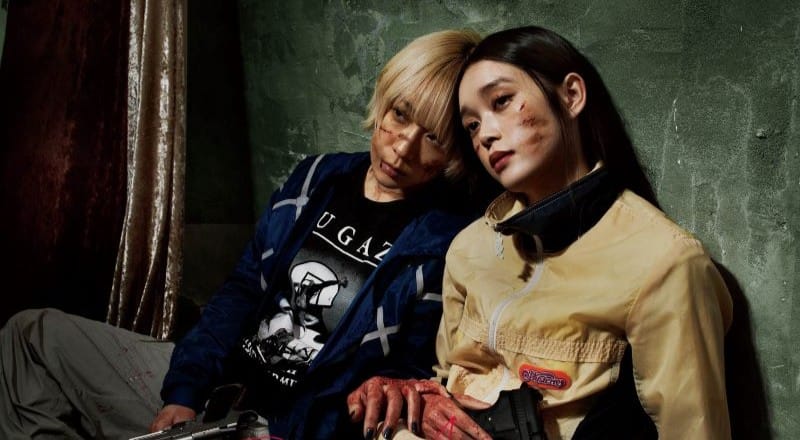
Work sucks.
I know, very bold and brave of me to say, but it’s true and I know we all agree. It’s a cosmic, preordained fact that the very concept of working blows, actually. Sure, plenty of people love their jobs, but the phrase is “love what you do and you won’t work a day in your life” for a reason. Work is work. It’s like, definitionally not meant to be fun, this pain in the buns hell activity we all have to do because that’s how it was decided things function.
But even with the very premise of work stinking to high heaven, it still feels like it’s been on a free-fall death spiral lately with its murder-suicide lover: modern capitalism (I’m so sorry, I have to). You need to work to live but you can’t work unless everything about you is just right and nobody will hire you unless you’re basically already working the job you want to be hired for even though a good percentage of those catch-22’d dream jobs of financial security are, let’s be honest, kind of idiot proof nothing. People get yearly salaries that are genuinely 20x bigger than mine and almost all they have to do is download software to wiggle their mouse every once and a while so they can go play Balatro instead. And let’s not even get into the whole “no ethical consumption under capitalism” thing and having to implicitly support and propagate awful, inhumane tragedies, most all companies and products you could get a job at all propped up on the backs of the exploited and suffering. It's all so well known, so played out, that these ideas about the cruelty of our systems have become cliche, fall back truths used as a crutch for anybody with a keyboard (cough cough).
Work sucks. It’s a prison. It’s murder.
Might as well not bother pretending otherwise, then.
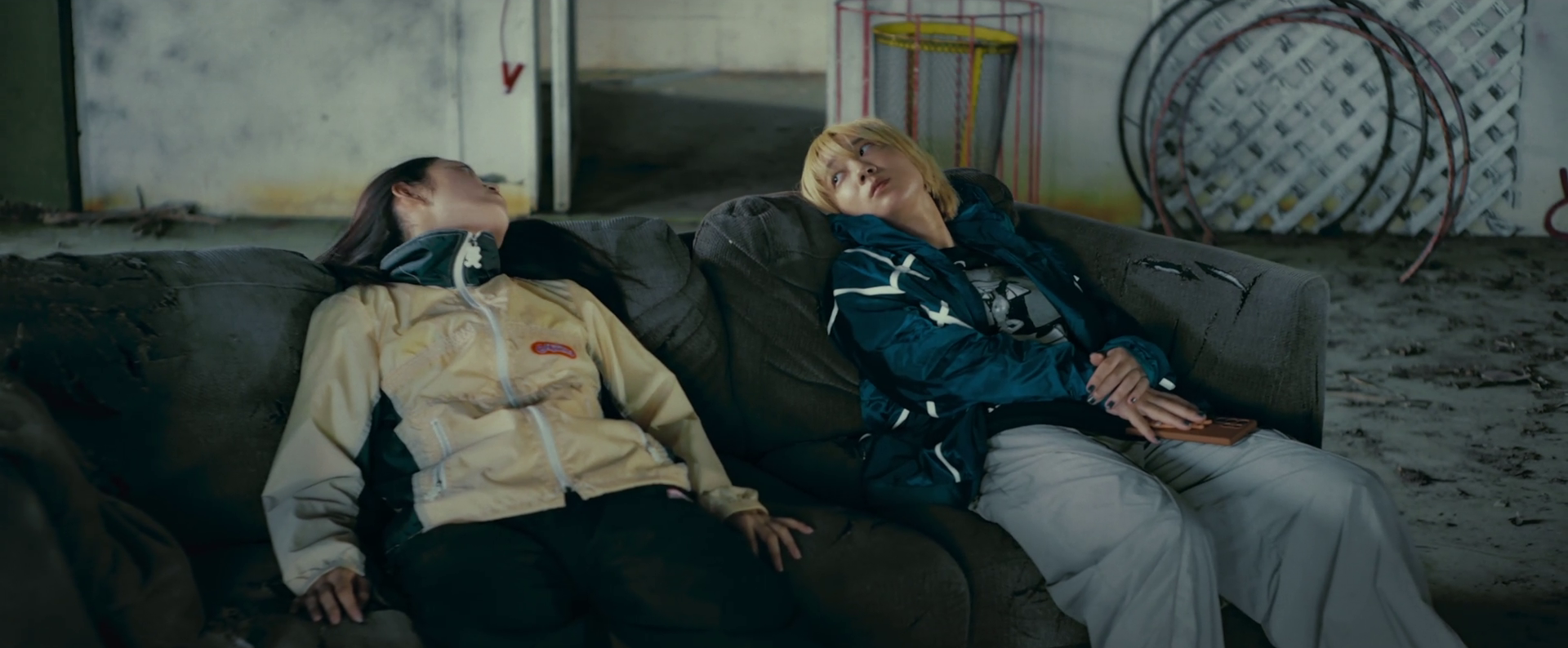
In the world of Baby Assassins, murder hardly means a thing. Starting in 2021 with a micro-budgeted comedy, the series, about the misadventures of Chisato and Mahiro—two young women working as professional hitmen—has expanded into a mini-empire, with two sequel films, a documentary, some audio dramas, and a TV series, all in less than five years. And thank god for it, because basically everybody I know whose dug in (myself included) have become like cult members for the young franchise.
Baby Assassins is charming in a thousand ways, scrappy and energetic and youthful and funny and always evolving, documenting the rise of an entire crew of generational talents pulling off arguably the best fight choreography in the entire world right now. Whether it be the slacker stylings of the first film, the heightened manzai (a kind of Japanese two person stand-up) of the sequel, or the slice-of-life misadventures of its show, the franchise has a way of worming into the heart and mind, brightening the mundane realities of life with a joyous splash of color as its two heroes try to navigate the literally deadly realities of working (and killing) in the modern world.
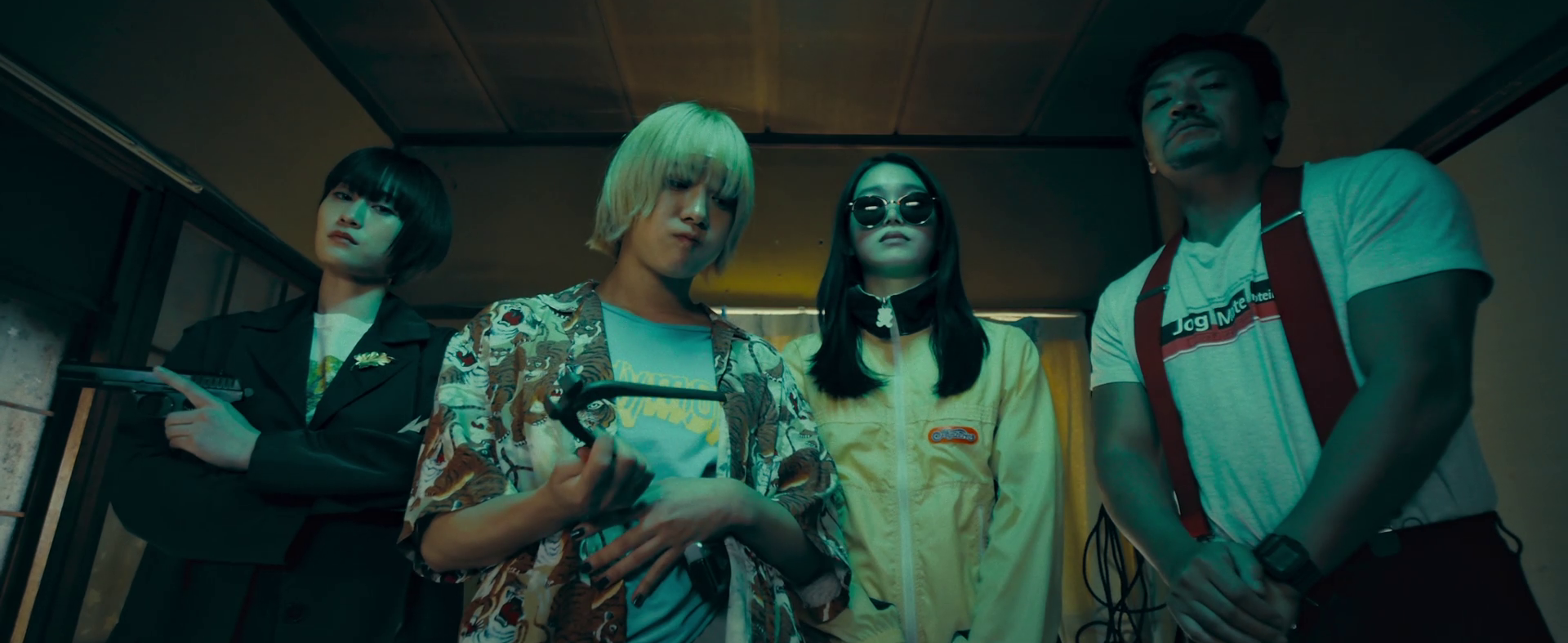
But something is different about the third film, Nice Days. Here, after hours and years of kind delights, the series reaches down deep into itself and pulls its insides out into the open, blood hitting the floor. There’s a darkness and weight to Nice Days, hijinx recontextualized and the interiority of characters laid bare in a way they haven’t before. There is, for lack of a better word, poetry.
This turn isn’t a complete shock. While brief, the climax of the second found things veering suddenly into a heavy, palpable sense of resignation, an almost nihilistic acknowledgment that every single character—like all of us watching—are going to die and it is not going to be a particularly meaningful death in the grand scheme of things. Every one is a killer after all, they’re just less removed from it, people who will never be accepted unless they embrace violence. It’s a movie that ends with a moment of genuine connection between our girls and the men gunning to take their lives (other hitmen who want to raise their profile). They are all, by all accounts, exactly the same: outcasts and failures, pieces of a machine used and abused. They should be friends. Life doesn’t allow for that.
After sharing some cat food (no commentary there, I’m sure), Chisato and Mahiro shoot the men in the head.
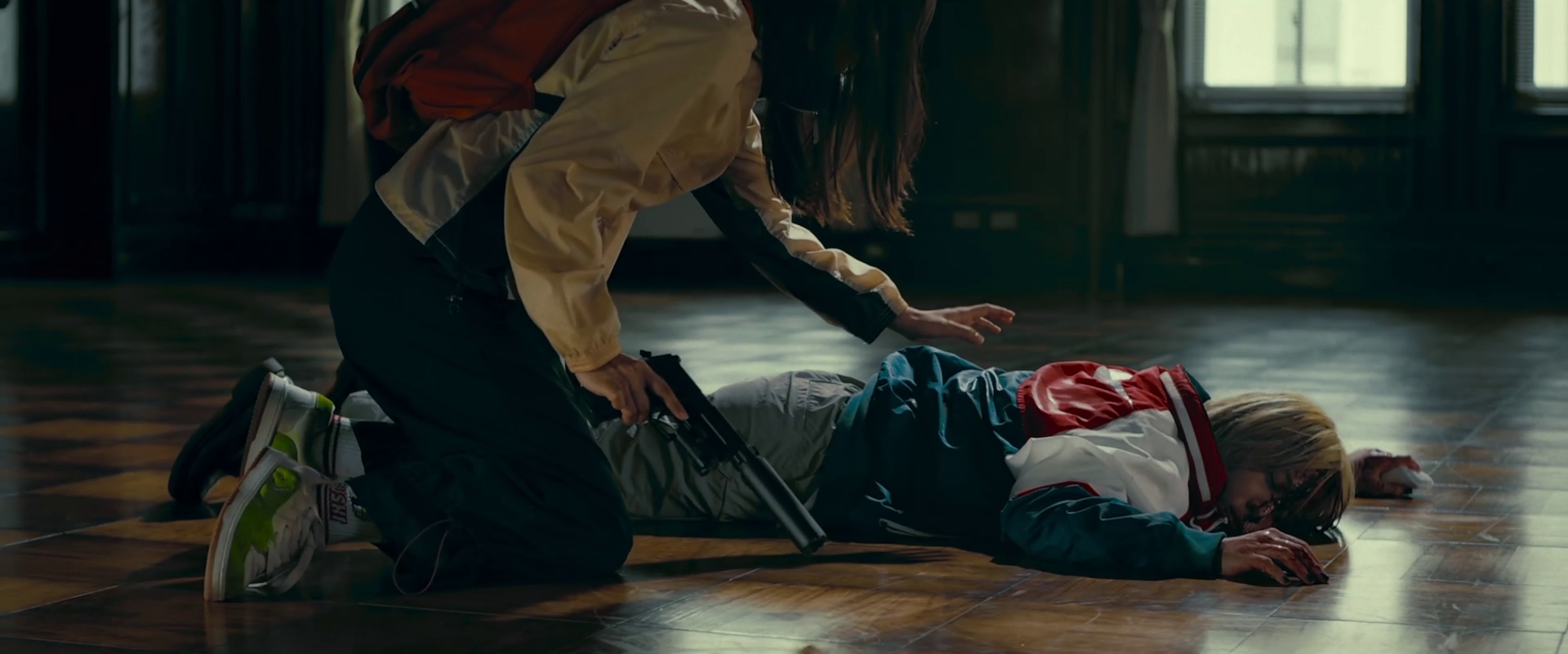
It’s from that gunshot that Nice Days emerges. Following the girls as they’re sucked into a war with Japan’s greatest living assassin, Nice Days forces the series for the first time into the structure and movement of an action movie, full of borderline unknowns like…stakes and tension. Wild concepts, I know.
What an action movie it is, though. You can’t talk Baby Assassins—and especially not Nice Days—without getting into the fights, gloriously chaotic and carefully choreographed by Kensuke Sonomura. Hand to hand brawls are at once elegant and messy, intricate movement of strikes and holds taking from both MMA and classic martial arts cinema are interrupted by sudden breaks and thrilling strings of feints. It’s action so fundamentally suited to the thematic content; scrappy brawls for life displaying a professionalism and joy in the act of the struggle.
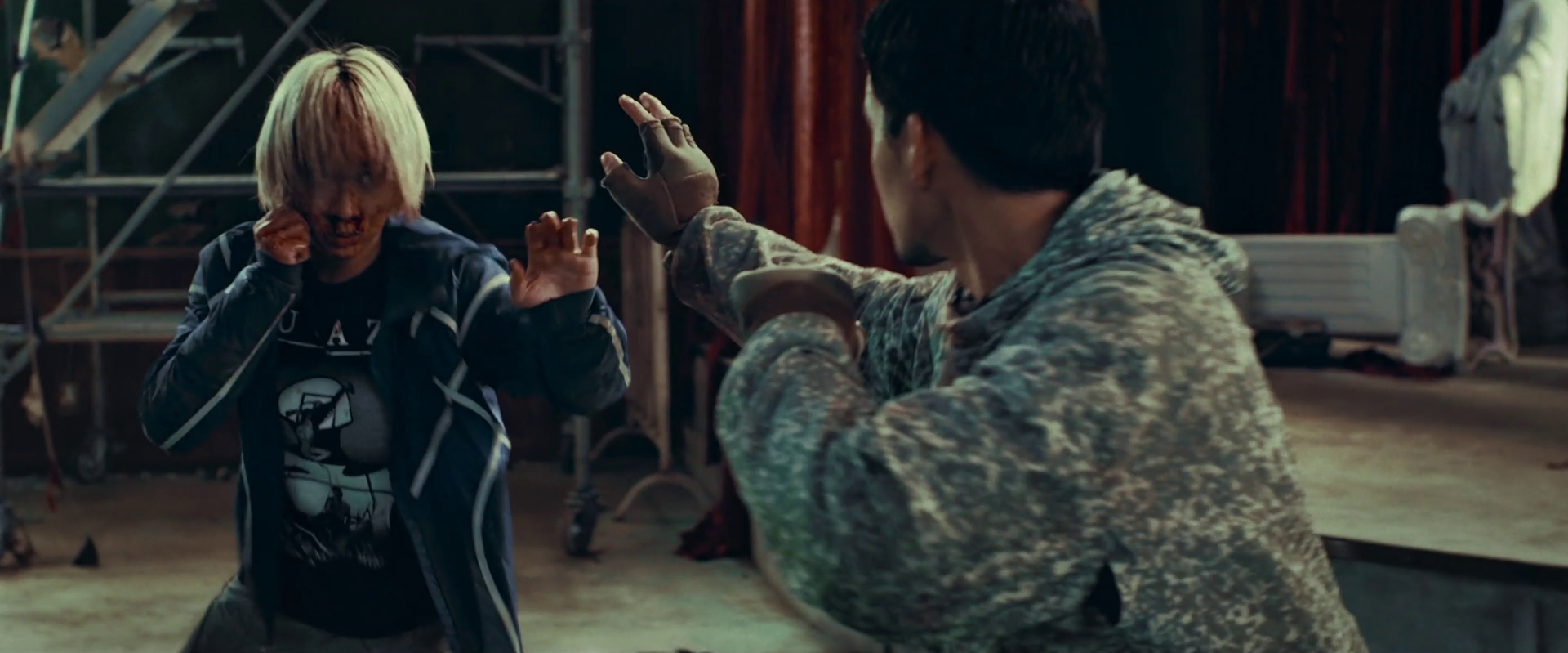
Much more impressively and importantly, however, is how intimate Nice Days becomes. Where once comedy served as observational jabs at the mundane or exaggerated Looney Tunes adjacent slapstick, Nice Days is full of comedy that doesn’t feel like it’s for the audience at all. It’s for the characters, moments to be shared between Chisato and Mahiro and no one else. Take one of the highlights of the movie, where they celebrate Mahiro’s birthday with her first beer, cuddled up together in a tent. It’s quiet outside, like they're the only ones in the world; they talk to each other barely above a whisper, stumbling and muttering words and getting visibly embarrassed over undisguised emotions. They drink and they laugh. “It tastes terrible,” they say. They love it.
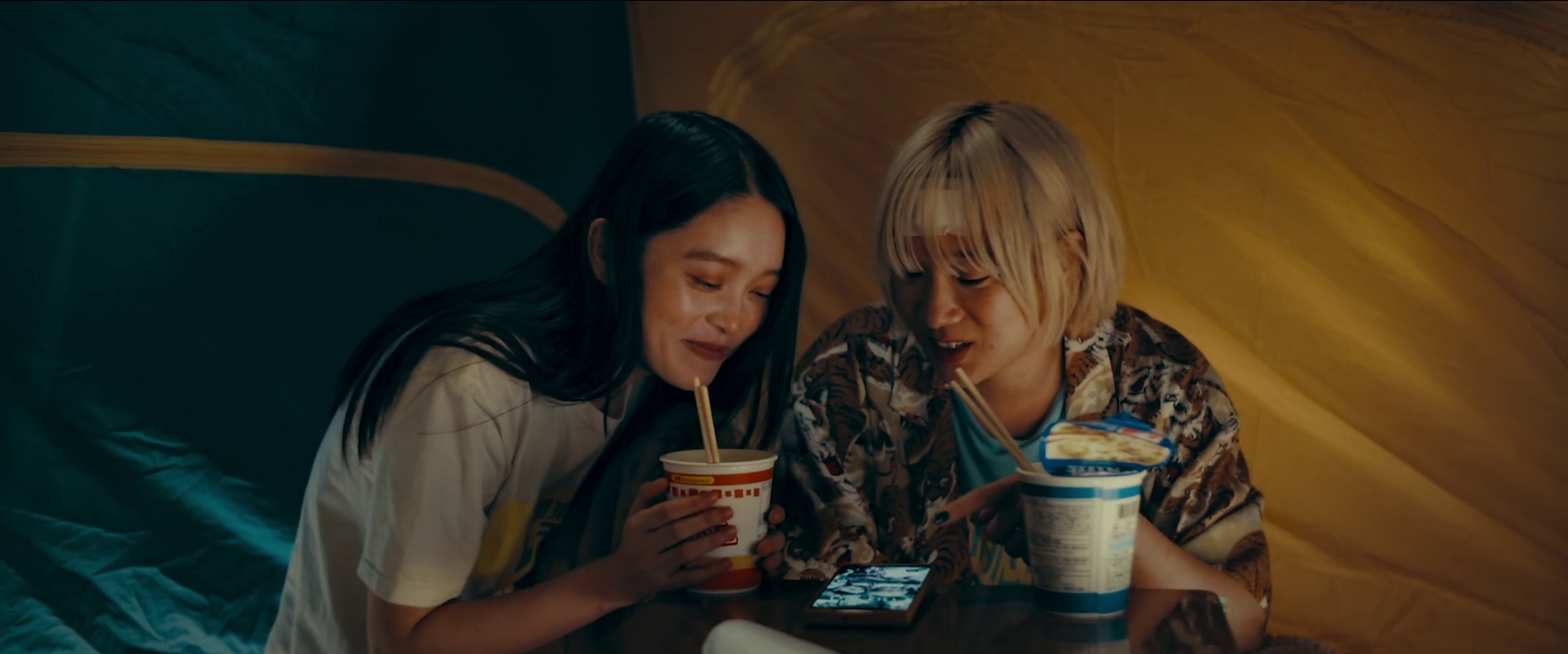
It’s moments like those, between these two young people killing for money to live and finding connection for the first time in their lives, that are the heart and soul of Baby Assassins. It’s also the heart of the villain.
The bad guy of Nice Days is a lonely man in the same way all of us are. His rise to power is ultimately one motivated by a desire to be understood and accepted, to have people who know what he is—this being that cannot function normally in the society we’ve created—and love him regardless. Throughout the film, he uses force to amass a following, and what does he do with them? He laughs and tells jokes. He pretends as best as he can that they are friends.
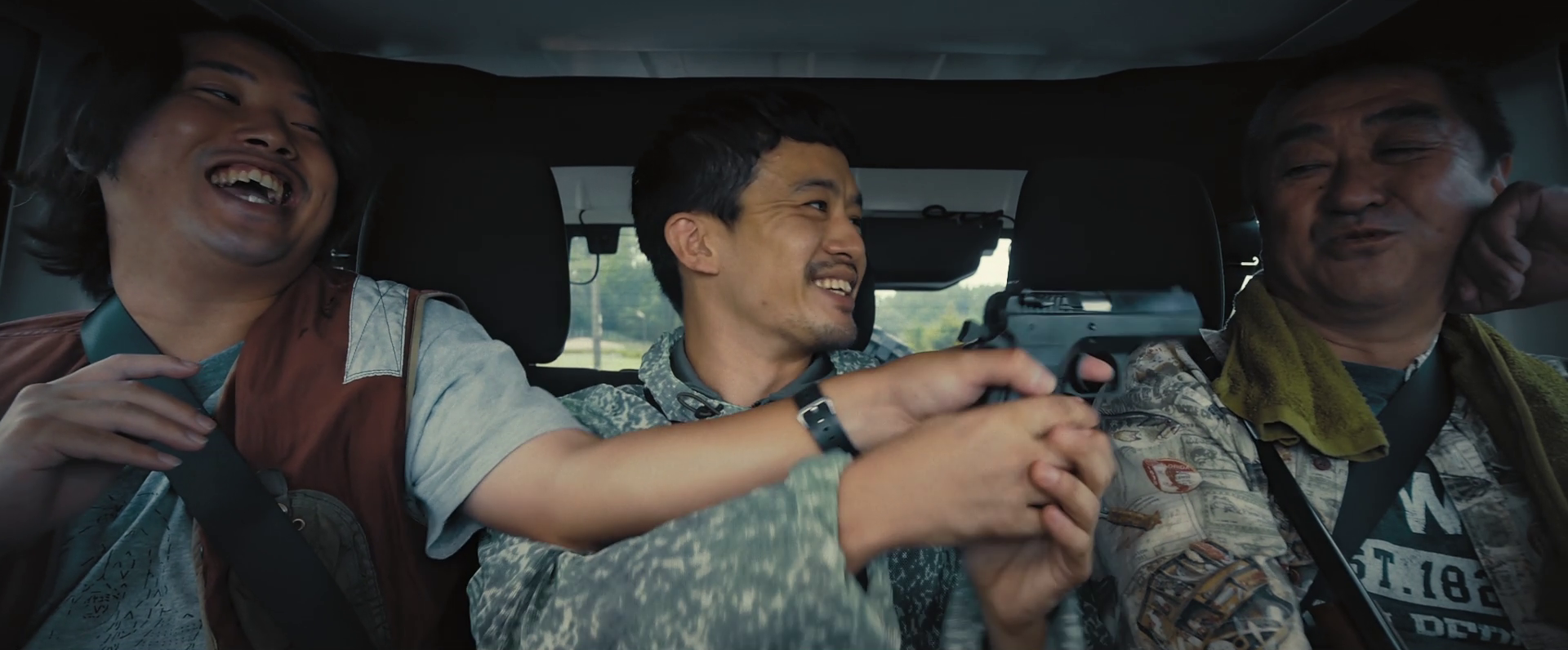
He’s a man bad at talking, bad at connecting, bad at living. He’s a man only good at killing, and that’s the only way he knows how to communicate, work and pleasure and connection and livelihood and sense of place all getting mixed up into the same empty mess. As a decidedly non-social butterfly without much in the way of skills besides the death warrant of successful living—an English degree—I feel him on some level. I just make people wish they were dead with bad writing instead of actually shooting them.
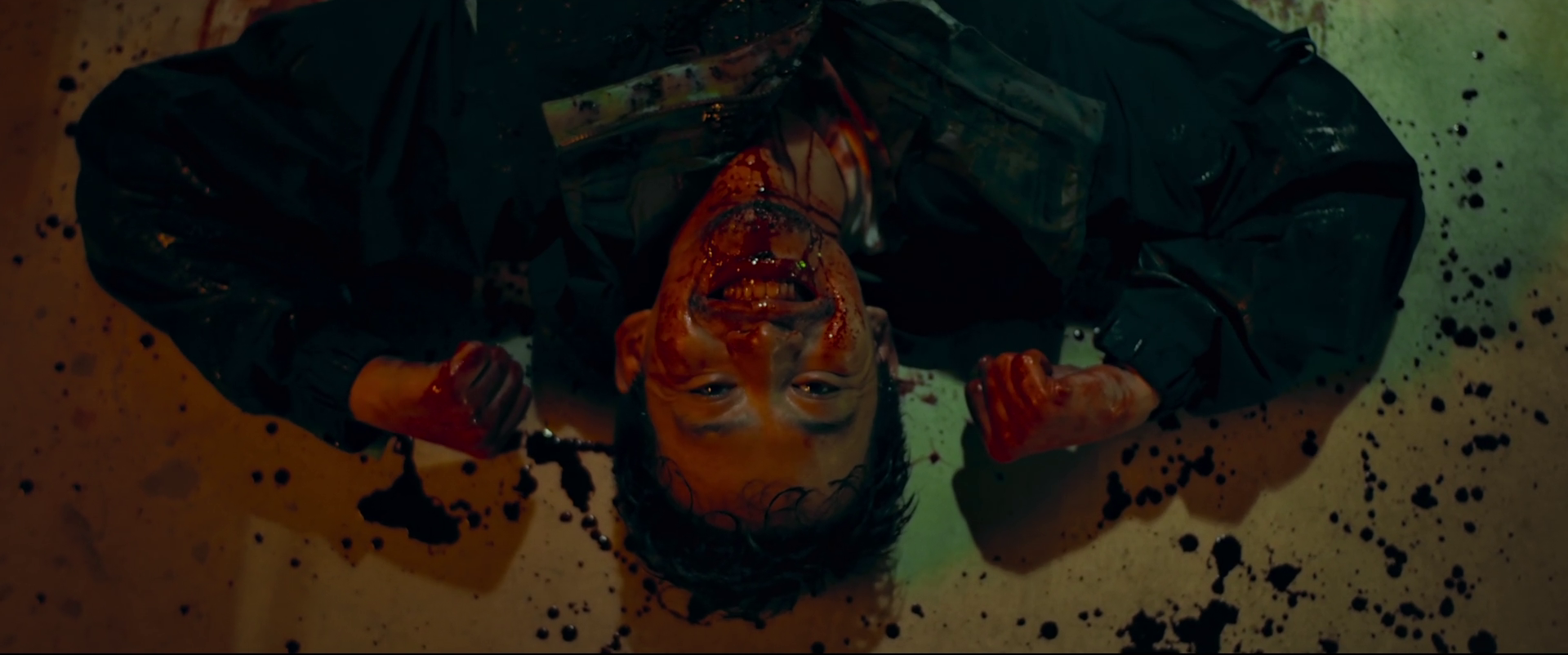
Fights are always conversations, but the climactic one in Nice Days, between Mahiro and Kaede, is not one about opposing viewpoints, not really. Because in almost every way, they are the exact same, just like the hitmen from the second film. It’s the same view, the person, battling itself for something more.
The difference, though, is ultimately simple. Kaede is alone. Mahiro isn’t.
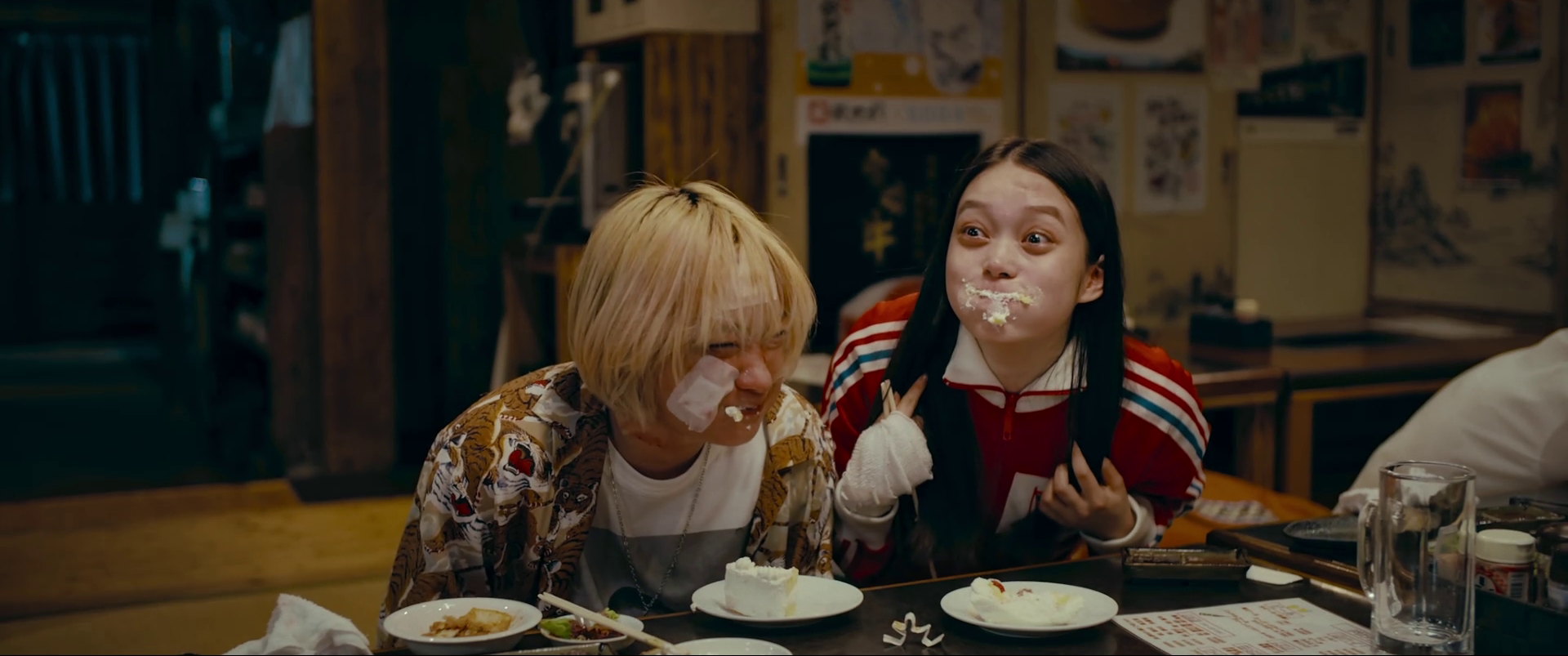
The world we are trapped in, one defined by business and capital and aspirations of giving up your life to a company in exchange for enough money to make your life easy and comfortable, is a violent and cruel one. We have designed society to not care about you. It can feel like everything, everywhere, is trying to isolate you, to trap you in an endless cycle of repetition and emptiness disguised as full because, well, it is. The great cogs of the modern world can only benefit from making us all believe that work is purpose, that work, in and of itself, is meaning.
Don’t let it. Lounge on the couch, be lazy, watch dumb YouTube videos with friends. Go eat some cake.
Music of the Week | Can I? by Totsuzen Danball
The 1981 debut record from a long running post-punk group that blends the extreme features of the genre (monotone vocals, angular tinnitus guitars) with hints of Derek Bailey style free improv playing for an open, echoing, off-kilter slab of rock held together by the fact that you can tell they could bring the house down if they wanted...they’re just having too much fun being freaks to bother. Just listen to their cover of “The Girl From Impanema” here—that all-time classic good vibe relaxer torn apart into endless repetition and wrong notes—and you’ll get what these guys are all about. Both silly and atmospheric, it’s a great example of how dissonance doesn’t have to equal dour.
Book of the Week | Devil the Second by Yuki Shiba
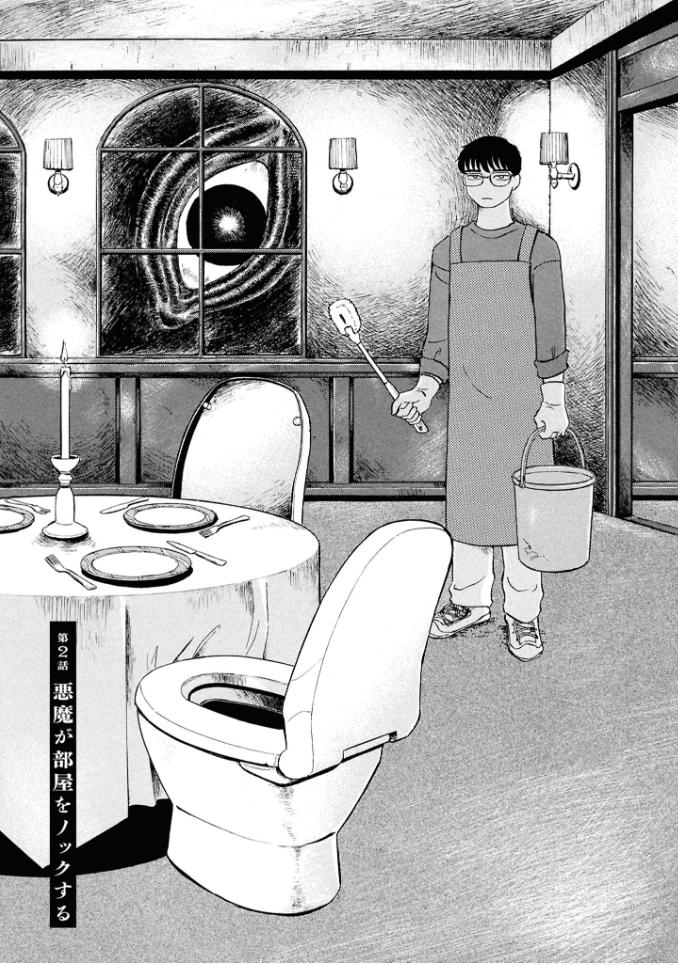
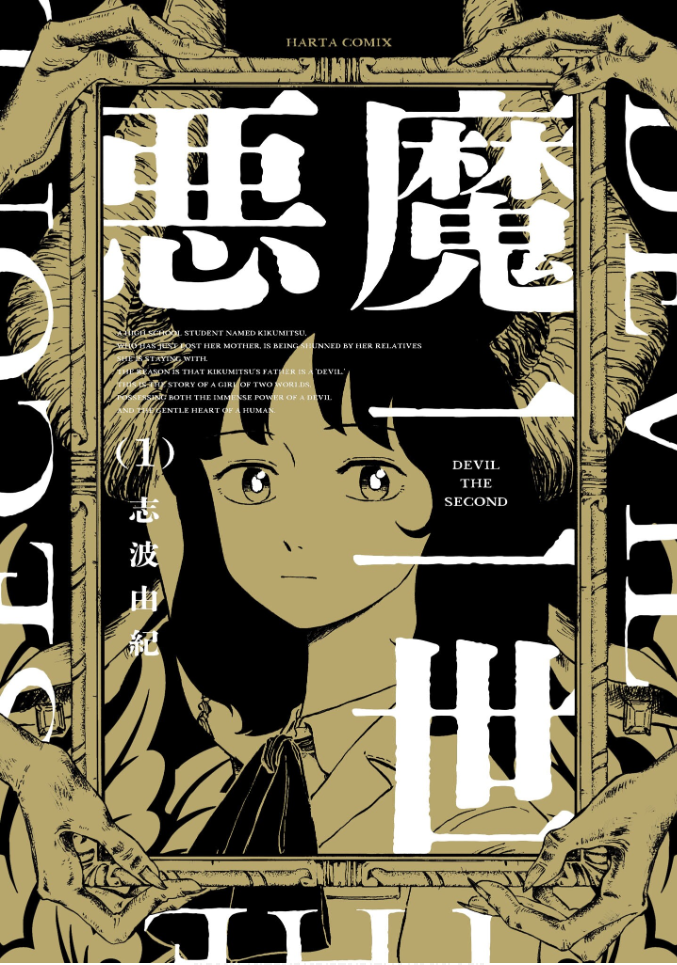
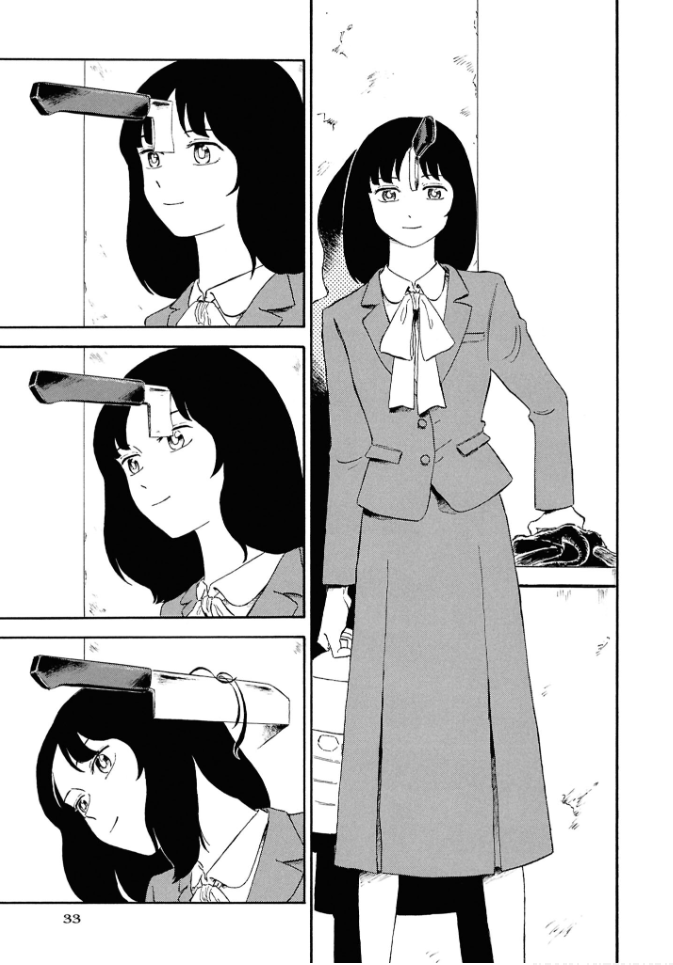
Words can’t do justice to how charmed I am by Devil the Second. Following the misadventures of a stone-faced boy and his klutzy new co-worker at a café (who also happens to be the daughter of Satan), this series captures the spirit of Rumiko Takahashi’s horror comedy leaning works better than maybe anything ever has. Holy water sold online by the liters, devils ensnaring victims via MLMs, and curses that compel you to donate to shady corpos, Devil the Second skewers modern life with a retro vibe and a commitment to character work. It’s absolutely one of my favorite currently running manga.
Movie of the Week | Video Drug 2 Phuture (dir. Hiroyuki Nakano, 1990)
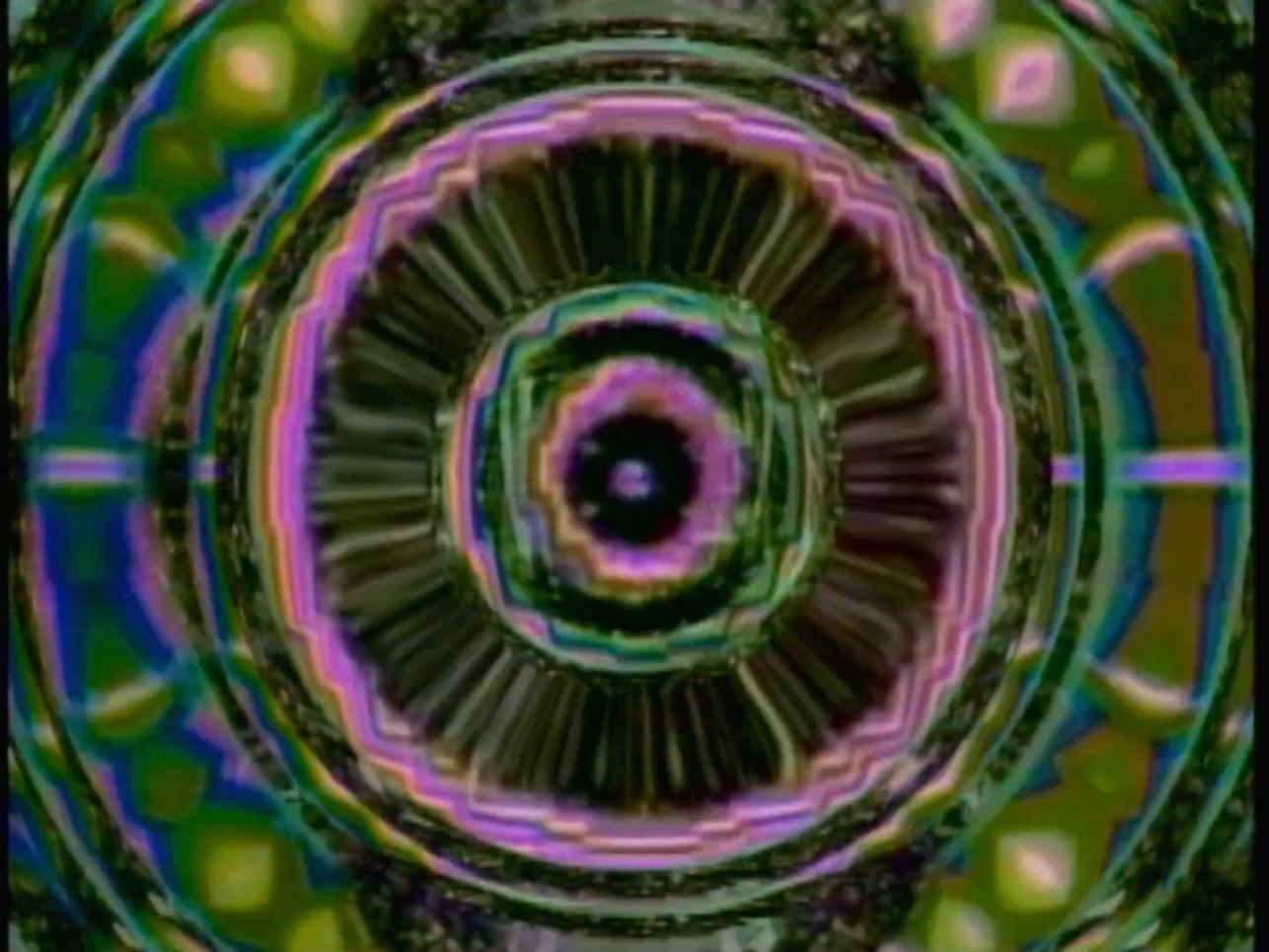
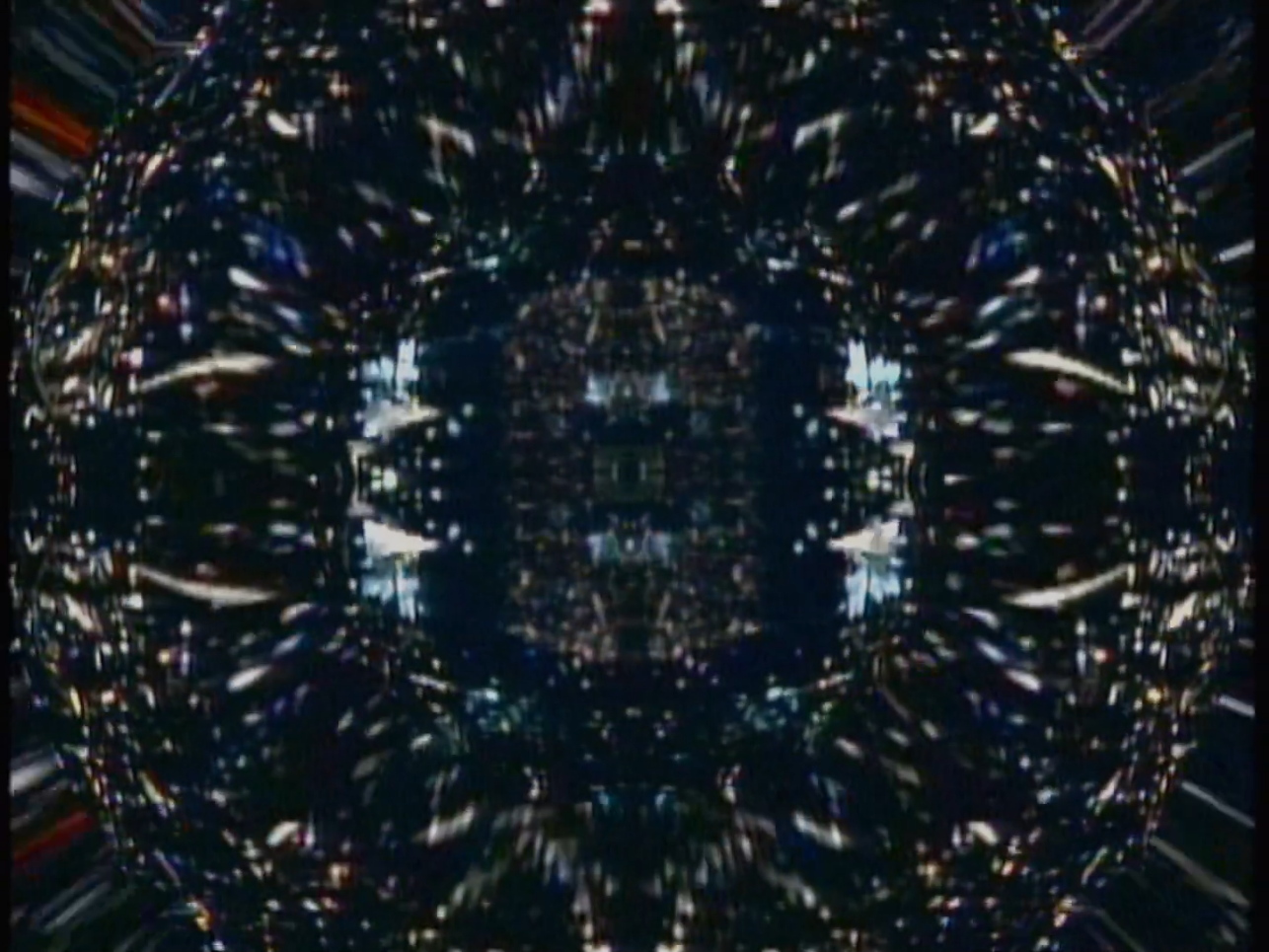
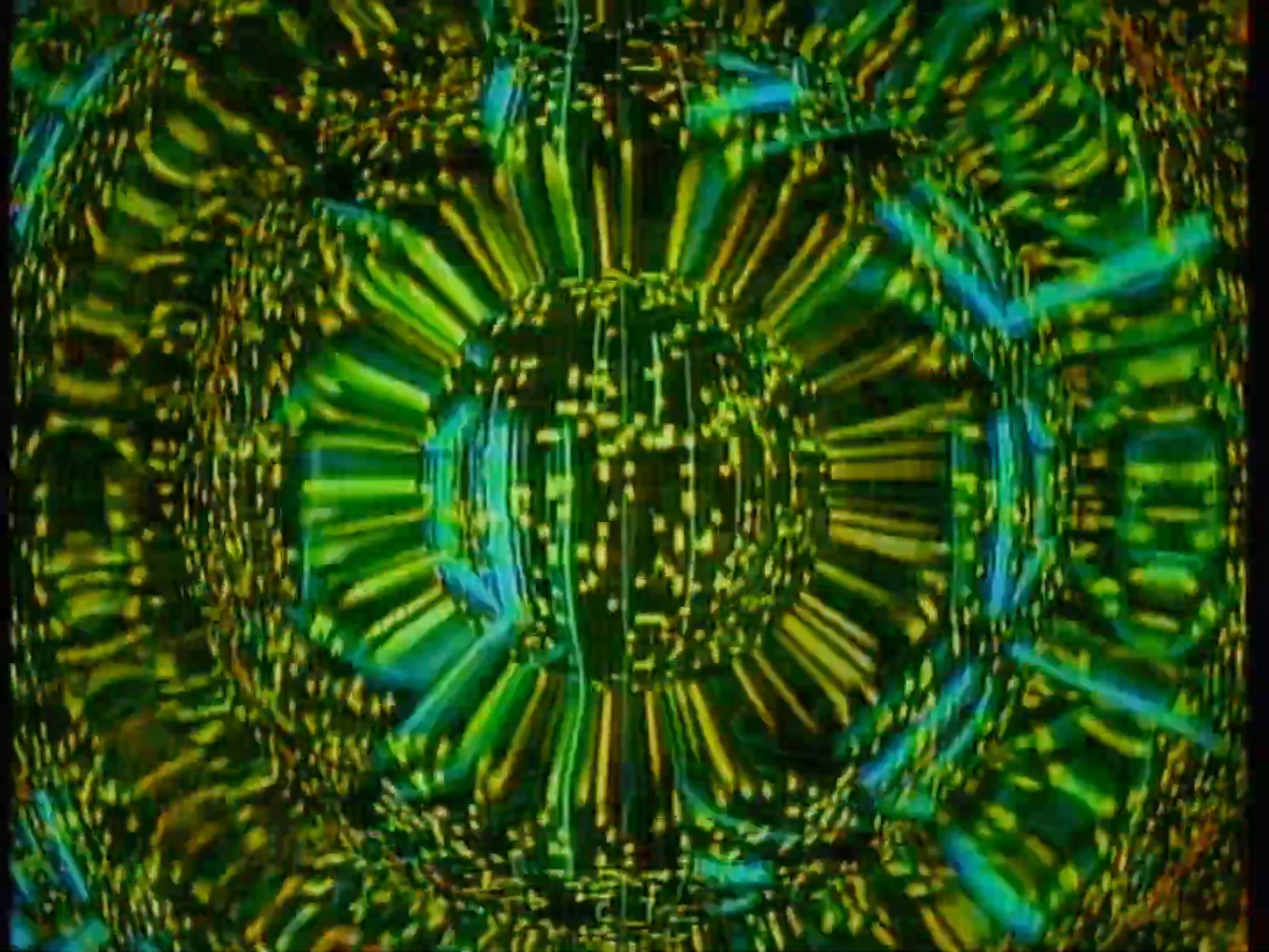
I’ll leave the description this time to the Eureka Seven director Tomoki Kyoda, who wrote briefly about it in Free Style magazine.
“If we’re talking video art, then I think the later hand-crafted FANTASY project from SEE GEE GEN (Hosoya Gen) is probably more impressive. That one is so cool. But this, by the man behind Deee-Lite’s ‘Groove is in the Heart’ music video, Hiroyuki Nakano, both perfectly encapsulates CG demo films and digital kaleidoscopes while also managing to transcend those styles. Flickering lights and optical designs are freely deployed in harmony with blaring club music in this very ‘90s attempt to alter the viewer’s consciousness. In that sense, it acts in opposition to films that use verbal language, but there’s also a sense of loss that inevitably follows the very pure state of being it invites that I love. Compared to anime and compared to film, this is art that is fleeting, destined to fade into the abyss of history, and I think that’s just as beautiful as it is sad.”
Have thoughts about anything covered this week? Got a recommendation you’re dying to share? Want to tell me how handsome and cool I am? Leave a comment below!
oh and here's my review of Final Fantasy 7 Rebirth for PC Gamer

